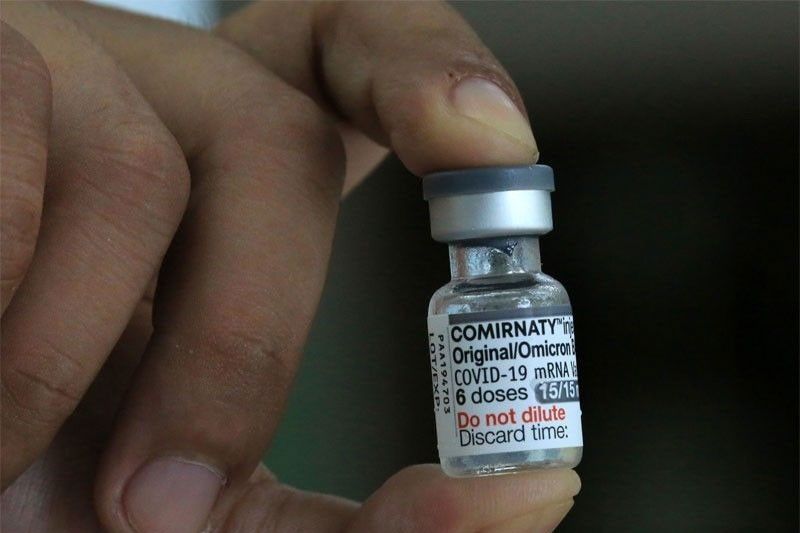Besides chocolates, beer, Belgium also a vaccine powerhouse

PUURS — In this Flanders town in Belgium known for its strong local beer Duvel lies the vaccine manufacturing site of pharmaceutical giant Pfizer, making its factory the center in the COVID-19 vaccine race.
Pfizer invited journalists from Southeast Asia to a tour of its factory late last month, when they learned about the company’s assembly line that ensures the sterility and efficacy of their products, shipped from its Belgium plant to over 170 countries, including the Philippines.
During the tour, Pfizer showed to reporters its machines that could detect nanometers of vial leakage, its use of electric currency to detect floating particles in the suspension, as well as its laboratory where vaccines were developed.
The COVID-19 vaccine manufactured here, in a partnership between Pfizer and BioNTech using mRNA technology, boasts of 90-percent efficacy, according to Luc Van Steenwinkel, Pfizer Puurs plant managing director as well as Pfizer Biotech operations vice president.
“Belgium is a vaccine powerhouse. A lot of vaccines are produced here,” Steenwinkel said of the country, home not just to chocolate connoisseurs, but also to major pharmaceutical players like Janssen, Sanofi and GlaxoSmithKline.
Because of its pharmaceutical landscape, Belgium became known as a “pharma valley,” making it one of the world’s top exporters of medicines.
“There is a lot of (pharmaceutical) history in Belgium, with its ecosystem of experience and knowledge in the universities,” Steenwinkel said.
Pfizer established its presence in the Philippines in 1954. When the COVID-19 vaccines arrived in the country, the hot climate made logistics difficult for the deployment of vaccine vials, which had to be stored at ultra-low temperatures of between -90°C and -60°C.
At the Philippine Senate, Senate Minority Leader Koko Pimentel found out from the Department of Health during the agency’s budget session that the Philippines has a vaccine wastage of 49.73 million doses, of which 38.54 million expired past its shelf life.
Of the wasted vaccines, more than half or 26.2 million doses were donated, while over 23 million doses were procured.
There is no way to find out if some doses were from Pfizer and if these expired due to cold chain issues.
The Philippines’ contracts with vaccine manufacturers like Pfizer are covered under nondisclosure agreements.
When vaccines arrived in the Philippines, Pfizer vials were practically impossible to be delivered by barangay health workers to island provinces and other geographically isolated areas, according to barangay health workers interviewed earlier by The STAR.
This means that vaccines like Sinovac, which could be transported with regular ice boxes, were the most accessible, while Pfizer jabs, sought after for their efficacy, were limited in the metropolis.
The latter company is addressing the cold chain challenges by doing research on lowering vaccine storage at refrigerator temperature, according to Steenwinkel.
When the pandemic happened, Pfizer and BioNTech had to deal with developing the most effective vaccine at record time to be able to save lives.
“We thought we would be able to fix the ultra-low temperature, but it would take much more time. Initially, we did some early trials, which were not successful,” Steenwinkel said.
“We didn’t have time. The pandemic was getting worse, and we needed to act fast,” he added.
To store and safely transport the vaccine vials, Pfizer developed temperature-controlled thermal shippers using dry ice to ensure ultra-low temperature during shipments, according to Pfizer Global Supply Chain senior director Peter Lundholm.
In the absence of cold warehouses, the vaccine vials could be temporarily stored in thermal shippers for up to 30 days by refilling it with dry ice every five days.
The shipper had to weigh less than 25 kilograms for easy handling.
“That helped bridge a cap on how we can bring our vaccines on a broad scale during the early days of the pandemic, when there was a very high demand for vaccines,” Lundholm said.
He added that the experience of hot-climate countries like the Philippines prompted Pfizer to look for technology in delivering its medicine to hard-to-reach areas.
In the Philippines, Pfizer pilot-tested a drone technology last year to provide medicines and vaccines in San Luis, Agusan del Sur.
“We learned during the pandemic that chaos and complexity can be uncomfortable… These are some of the learnings from the pandemic on how we revolutionized our supply chain,” Lundholm said.
- Latest
- Trending






























